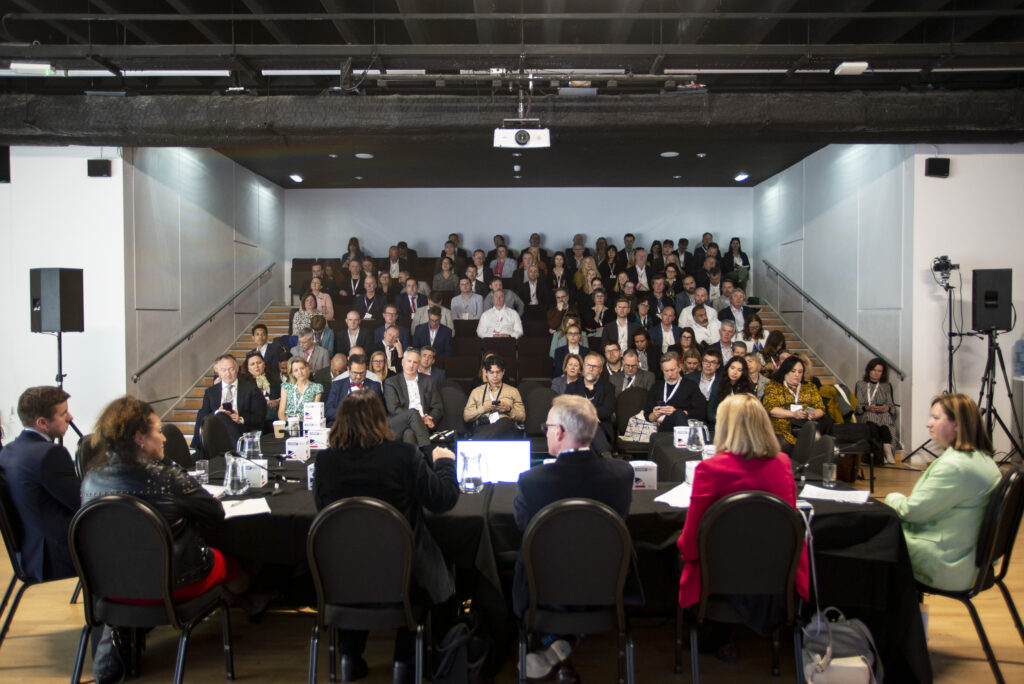UNLOCKING INVESTMENT TO PRODUCE SUSTAINED LEVELLING UP OF THE UK’S CITIES – REFLECTIONS FROM A PANEL DISCUSSION
UNLOCKING THE RIGHT KIND OF INVESTMENT TO PRODUCE SUSTAINED LEVELLING UP OF THE UK'S CITIES - REFLECTIONS FROM A PANEL DISCUSSION

Tuesday, 16 June
By Andrew Travers, Director at Inner Circle Consulting
It’s clear among the political leaders and chief executives of our biggest cities that it’s time to invert the pyramid – to direct government to provide the support that will enable cities to take control of their destinies and unlock their potential. And it’s clear that potential is huge.
These were the strongest conclusions that came out of our round table discussion at UKREiiF in May, at which we assembled a powerful panel including Deborah Cadman OBE, Chief Executive of Birmingham City Council; Stephen Jones, Director of Core Cities; Cllr Georgia Gould, Chair of London Councils; Pam Smith, Chief Executive of Newcastle City Council; Cllr Susan Aitken, Leader of Glasgow City Council; and myself.
The panel discussed the work of the Urban Futures Commission, created by Core Cities and the RSA. The premise of that work is that there is untapped potential, that we need to understand where cities are now compared to where they could be, and what it will take to bridge that gap. Everybody recognises that’s not something that’s going to emerge by central government action. Cities need to take control. They are realising that it’s up to themselves and their partners to make things happen.
Until now, the centralised nature of the UK and particularly the English state has suppressed cities’ potential. The idea that change can only happen from initiatives defined by “the centre” means the role of city leaders was merely to respond to promptings: Have a little bit of devolution, bid for a funding pot, be accountable to the centre, not to your communities. We are all conditioned to some extent operate in this way.
But now there is a recognition that this form is failing the UK in terms of productivity and economic growth, our ability to respond to net zero and a whole range of other problems and inequalities. We are realising that the centralised state has neither the answer nor the capacity to be that omnipotent central actor. That recognition has been heightened by recent governmental incompetence, but what came before, while competent, didn’t work either. Government has failed to deliver. A consensus is emerging that a regional and local approach has a much better chance of delivering our ambitions for our people and places.
On our UKREiiF panel, Birmingham City Council chief executive Deborah Cadman: “Don’t be buffeted by the storm – be the storm”. In other words, don’t sit waiting for something to happen. Make it happen.
That’s when we got into the discussion about how leaders lead. When we say ‘leaders’, it’s not just about local authority and combined authority leaders and chief executives. It’s about university leadership, health leadership, business leadership, community leadership. It’s about Civic Society and how you build formal and informal coalitions of governance in which leaders can lead.
There are some very specific challenges for the core cities, such as their relationships with their combined authorities and how they form a public sector leadership approach. But finding the answer is much more about how to bring all the other players together. It’s not necessarily always the local authority or city leader that’s driving the agenda – you need other leaders to come forward. Their power to unlock a better future depends on leaders’ ability to convene and build coalitions.
For all cities, it’s important to recognise that once you’ve got your strong governance and leadership, you can’t do anything unless you’ve got capacity. That’s something each place has to work through. That means exploring your full range of data and intelligence about your city, your ability to develop strategy, to deliver development, to create local plans, to manage project portfolios, to make deals.
At the moment that’s a huge struggle because of the dumbing down over many years of the local compared to the central, to the point where there is very little resource locally anymore. Even when you’ve got yourself in a different mindset about doing stuff, finding capacity to do it is very difficult. A key part of the Urban Futures Commission work is to come up with some solutions to that.
So – be the storm. But be your own kind of storm! You need your own vision, strategy, narrative to talk about your place. Everywhere is different; each city has different views on the opportunities embodied in the place and the strategy for unlocking them. That’s the great strength of local leaders doing this work: they understand their places and their communities better than anybody else.

